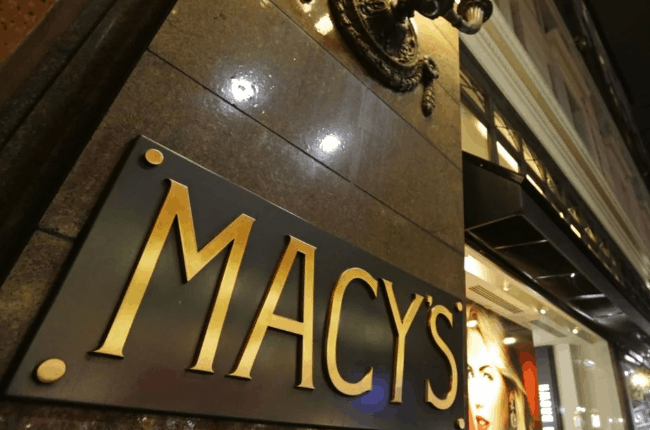
Macy’s will begin reopening its stores next week after closing them and furloughing the majority of workers due to coronavirus lockdowns across the country. On Thursday, CEO and Chairman Jeff Gennette outlined the steps the storied department store chain is taking as it struggles to make up for lost sales and maintain a safe store environment for would-be shoppers.
“If there’s one small advantage of being a non-essential business, it’s to see what the essential businesses are doing and how they’re responding,” said Gennette in an interview with Chuck Grom, an analyst at Gordon Haskett. Macy’s stores will begin opening on a staggered basis, starting with 68 locations on Monday and another 50 on May 11. Gennette expects all stores will be open within eight weeks. However, not all stores will be fully operational. Some will have certain areas open or fulfillment stations, or simply curbside pickup for customers unwilling to enter the store. Macy’s is working with state and local governments, as well as mall operators at some of its shopping centers, to relaunch its fleet.
But the retailer, which was already struggling with sales well before the pandemic, predicts a slow return to demand. Gennette says next week’s sales will likely be one-fifth of what they normally would be at this time of year. To make up for such losses, Macy’s has cut back its marketing dollars, including its digital search advertising.
While sales are only coming from e-commerce operations, consumers are still buying some items. The home (including furniture and cookware) and beauty categories have both been strong areas of the business through COVID-19; unsurprisingly, apparel, particularly dresses and men’s dress shirts, has not been in demand, Gennette says. “The more casual it is, the better it’s doing,” he noted, highlighting a style trend that was already in effect pre-pandemic that may further accelerate now.
Once customers return to stores, however, they may be lured in by the deep discounts Macy’s is offering as it seeks to unload excess inventory before the fall and holiday seasons.
“There’s going to be great deals out there,” Gennette said. He added that Macy’s April business went through “a big growth spurt” from where it had been early on in the month as some consumers deposited stimulus checks from the government. Macy’s is, however, being “conservative” in its back-to-school and holiday merchandise orders. “It’s going to be gradual—we don’t want to get ahead of our skis in over-ordering content,” Gennette said.
As earlier reported, Macy’s is still planning to host its annual Fourth of July Fireworks in New York City in some fashion. Gennette said he is working with New York City Mayor Bill DeBlasio on keeping the celebration safe—he highlighted the TV aspect of the event. Macy’s is also starting to plan its Thanksgiving Day Parade, which typically draws in more than three dozen brand partners and 3.5 million spectators, with virus-related precautions. “We’re committed to both these events,” said Gennette, though he noted that Macy’s is “working through what the country is going through and how to change the narrative of the parade to be reflective of that.”
























